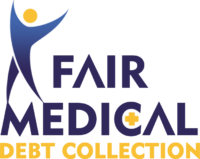
Navigating Unpaid Medical Debt: An In-Depth Look at Specialized Debt Collection Agencies
In the United States, medical debt stands as one of the most common types of debt, affecting countless individuals and families. With the high cost of healthcare, unpaid medical bills can quickly mount, leading to financial strain and distress. As a result, many healthcare providers and institutions turn to specialized debt collection agencies to recover unpaid medical debt. Fair Medical Debt Collections explores these particular debt collection companies, how they operate, their role in the debt recovery process, and some considerations for patients facing medical debt collection.
Specialized Debt Collection Agencies: A Brief Overview
Debt collection companies specializing in medical debt recovery have become an integral part of the financial landscape. These agencies function as intermediaries between healthcare providers and patients, handling the difficult task of recovering unpaid medical bills. This specialization allows them to navigate complex medical billing systems, insurance claim disputes, and relevant legal regulations surrounding medical debt.
How Do Medical Debt Collection Agencies Operate?
When a patient can’t pay their medical bill, the debt typically goes through several steps before it ends up with a collection agency. Initially, healthcare providers attempt to collect the payment themselves. However, if they’re unsuccessful after a certain period, they may sell or transfer the debt to a collection agency.

Once the debt is in the hands of a collection agency, they employ various strategies to recover the amount owed. These tactics may include sending letters, making phone calls, and reporting the debt to credit bureaus. Some agencies also offer debt repayment plans or settlements to make it easier for individuals to pay off their debt.
The Role of Medical Debt Collection Agencies in Debt Recovery
Medical debt collection agencies play a crucial role in the debt recovery process. Healthcare providers often lack the time, resources, or expertise to pursue outstanding debts effectively. Debt collection agencies offer an efficient solution by taking over the collection process, enabling healthcare providers to focus on their primary responsibility: patient care.
Debt collectors also act as a bridge between patients and healthcare providers. They can assist individuals in understanding their debts and provide options for resolution, such as payment plans, debt negotiation, or in some cases, debt forgiveness.
Considerations for Patients Facing Medical Debt Collection
If you’re a patient dealing with medical debt collection, there are some important points to remember:
- Know Your Rights: The Fair Debt Collection Practices Act (FDCPA) provides consumers with protection against abusive, unfair, or deceptive practices by debt collectors. Familiarize yourself with these rights to ensure fair treatment.
- Verify the Debt: Always ask for a written validation notice. This document should include the amount of the debt, the name of the creditor, and a statement of your rights under the FDCPA.
- Seek Professional Advice: If your debt becomes overwhelming, consider seeking advice from a credit counselor, attorney, or medical billing advocate. These professionals can help negotiate your debt, possibly reducing the amount owed or setting up a manageable payment plan.
Find A Medical Debt Recovery Agency Now
Medical debt collection agencies for the healthcare industry play a critical role in the financial ecosystem of healthcare, allowing providers to focus on care while ensuring debts are pursued. However, it’s essential for patients to understand their rights and responsibilities in this process, and where possible, seek professional help. By navigating the complexities of medical debt with care and understanding, both providers and patients can work towards resolutions that align with their financial capabilities.


